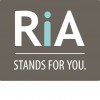Is there any point in 401ks, etc. if your employer won't match?
Let's say your employer doesn't match anything with your 401k, and you have no issues with saving money, you don't have a million expenses... is there any point in having a 401k, iRA, or anything of that sort then?
I've got two jobs plus I'm married, my wife works, our expenses are low, I have a savings account with a pretty hefty amount (I save $200/week). All I would have to do is open a second savings account and that could go towards a house or something.
Thoughts? Suggestions?There is vast amounts of empirical evidence that you should always be invested in the market.
Money just in a savings account will take a beating by inflation over the years.I don't see how inflation could hurt someone who keeps their money in a savings account? I mean I can understand if one was just hiding the cash under their mattress, then the bills would be outdated once inflation occurs. But if its kept within a savings account that is with a financial institution, backed by the FDIC, wouldn't the bills get updated/adjusted for inflation?
I think inflation is more of a political concern as well as a concern for people investing in the stock market where your money is actually at risk.
Normally, when you save money and it earns interest, you're taxed twice: you're using after-tax dollars to set aside (income tax #1), and then you're taxed on any interest or appreciation in value of those savings (income and/or capital gains #2).
If you use a 401k, you will only be taxed once. Traditional IRAs and 401ks will only tax you on the appreciation of value when you redeem at retirement (you use pre-tax money, avoiding tax #1) and Roth IRAs and 401ks use after-tax dollars, but you will not be charged income/capital gains taxes when it comes to redeeming them at retirement (you avoid tax #2).
Employer matching is just another nice benefit, but it's not required for 401ks and IRAs to help avoid taxes for retirement savings.If the house your saving for is your first house I believe you can use either a Ira or 401k as a down payment without taxes or penalties.
I used this method when I was 25 to buy my first house about five years ago so I don't remember the exact particulars but it is definitely in your best interest to check that out. You can rack up a lot of money for a down payment this way in a few years.
No matter what everything goes up eventually so you gotta be committed for a few years, it's not a get rich quick method but it greatly outstrips a savings account for a down payment especially when taxes are factored in.Hello; Are you saving for a home or interested in setting aside funds for retirement. Both concerns are completely different. Saving for a house would genarlly have a shorter time horizon then retirement, even if you can utilize your IRA for first time buyers. It is potential, that if you try to use your 401(k) towards the purchase (if or when) is not the same as an IRA first time buyers tax break. If you do a 401(k) it is likely, you would have to take the funds out as a loan (cost) since withdrawals are different than an IRA. Also, in a 401(k) you would be potentially subject to the vesting rules of that specific plan; so lets say you did put funds into a 401(k) and your not fully vested, potentially when you need the money for the home purchase, and if your not 100% vested, you migh not have full access to the full account balnce of the 401(k). I'd check that out. Be "Prudent," saving for a house, what is the time horizon. If it is less than say 2-3 years, this would b considered a short term solution. Secondly, owning a home does also have it's tax benefits! Not only that, homeownership can be obtained with the purchase of deep discounts to market. Whereas, investment in a 401(k) cannot be purchased at a deep discount. Many stocks for instance are still at 10x to Price/Earnings! Make up your mind and know your time horizon. Hope this helps.
I wouldn't invest in this atmosphere... too much possibility of principal loss .Banks pay nothing but the principals never at risk ( except against inflation).. It depends what your risk/reward outlook is ... Everybody in high risk got clobbered in the housing collapse and those holding low risk/ low yield fared pretty well... if the company was matching it would be a different story as its all their principal at risk off the top. Of course there will be others who say take some risk and get some reward but Hey, to each his own... There's always low yielding bonds but who knows where that's gonna go. If rates suddenly rise you could get high principal loss there too. Better off waiting til after elections to sign-up.. Again this is only my opinion.
Based on your comments, what do you suggest instead of saving in a 401k - a bond mutual fund or buying bonds directly from the U.S. government?
it's a loss of 'purchasing power' if sitting in an account making a 1 percent nominal bank rate while the rate of inflation is anything higher than 1 percent giving what's called a REAL negative interest rate of return on saved money, however with the way stocks are bouncing up and down lately on volatility the same could be said for investing.
I have a hub called 'purchasing power'. It s a simple, easy read with an slightly exaggerated example to explain things easy, but doesn't take into account any investing or noninvesting ideas, but I would say, understand the meaning of what inflation is before even going as far as deciding whether to invest or not invest. you'll have opposing opinions as seen here but I'm only answering in the perspective of it being in a 401(k). That's not to say other investing wouldn't be bad.
As far as cash notes being adjusted up or down. The answer is NO. You could however invest your cash notes in (TIPS) Treasury Inflation-Protected Securities. They pay a coupon of interest over and above the Inflation rate. Learn those two things first and then decide,
The reason I say that is because even in a 401(k) you'll have to choose from a few different funds by the investment company used by your corporation. That could include a low yielding/low risk bond fund to a high risk/ high yielding stock fund. It will be in the prospectus of each to choose from. It's up to you after that but even 401(k) investing can destroy principal such as what happened with funds holding CDO's during the housing collapse. It's your money, so you ultimately have to make that choice over high/risk high yield or low risk/low yield..
And by the way there are two defintions of Inflation (Monetary inflation and Price Inflation) tough to discern which one someone is talking about at all times but generally means a rise in prices as opposed to simply printing and inflating the amount of bills in circulation. I tend to think monetary inflation cause price inflation but that's an'Austrian' economic perspective compared to the' keynesian' definition.I just posted a whole explanation before realizing you posted the same thing lol. Should have read your post first could have saved me the three mins typing.

I have to find this example in my book but it shows what happens if you had invested in the market 1000$ every year good times and bad.
The other guy invested only during the good times.
The guy who invested the same amount every year was far richer.
Buying stocks cheap pays off well.
They always go up eventually. Look at the data for the past 60 years.Yes, that is called 'dollar cost averaging' and I tend to agree with you.
There is always a point in investing for retirement. There is never a good time to do without money in the here-and-now, but come retirement age you are going to need it. The trick is to just keep paying in what you can afford regardless of the market--and as you near retirement move to safer investments like bonds.
Excellent advice.
You could go the route of stocks which guarantee divends. Like AT&T.
That's what I think im gonna do when I'm old one day if I make it there.
Dividend stocks are definitely a good investment especially if you take advantage of the (DRIP)'s dividend reinvestment plans available and hold. It's in the growth stocks you can take a big principal hit.
What do you think about buying the whole s&p 500?
Statistically it has done well but I don't know, I was gonna buy it but it's been so shaky lately.
Do you think less exposure is better at the moment?
Like diversified with bonds ,money and commodities?
to be honest the s&p is all a paper cash game that I don't bet on. I mess with individual stocks online and stay away from index buying and option trading mostly because you have to deal with all the Greek $h@t that only a quant could understand.
as you can see i'm a low/risk low/yield guy myself because I refuse to let a manager take my money.
I once had a guy telling me the S&P was going to 1650 and within a week tanked to about the 1250 its at now.( not saying it can't go higher now)
It's funny though because I tend to watch the dollar index basket just to see if I can indicate where I think things are going as well as the late night Asian opening and since then I've been wanting to go to riskier investing. I hate losing principal.
Ya know I read the Yahoo finance comments and laugh because they all ask why the Euro matters, it has nothing to do with America, but the way the basket is set it does because it tips the scale the other way in terms of strength or weakness which correlates big time who's taking cash in and out of the markets to bet on.
Personally I think the market as a whole doesn't have enough cash in the game to expect a big return on any Index betting. There's going to be ups and downs betweeen the support levels but I can't see any real large cash drops to see a Dow at 14000 or S&P at 1350 in the near future. Once this housing foreclosure mess clears I think there could be a nice jump. Or after elections next year as people are on edge.
... and then there's always a QE that could push it high although I hate the QE's when I save in low yielding CD's...lol... this is the worst time to save .. I might as well start shopping.
I actually think they are held in check politically whether they can have a QE right now without knowing the total deficit in place next year... Especially pushing that debt ceiling to its limit just before elections. They talk about it but I'm not sure its feasible without politically destroying the campaign of the current administration. Can you tell i'm biased? ..lolGood post.
Eu also effects the import export game for us too which a lot of people forget.
There is some good information that others have posted, i will just outline my thoughts and experiences.
as mentioned in other comments, even if your employer does not match your 401k, you are using pre tax dollars, and it grows tax free inside the 401k, then you are taxed when it is withdrawn, and penalized if it is before that special age, 59 1/2. in the finance world i was trained to use + and - to see how good it is. so with a 401k as far as taxes go its +, pre tax, +, grows tax free, and - is withdrawn and taxes are applied.
if you used a normal savings account, it is used with after tax dollars, -, grows with taxed dollars,-, and is withdrawn tax free,+. the main difference is liquidity, what you give up in tax advantage with a 401k, you get with the ability to withdraw your funds fast and penalty free with a savings account.
the other thing to consider if your employer offers a 401k or profit sharing, my wifes profit sharing fund is growing way ahead of the market, and even though she no longer works, there, we are keeping the funds there because the business is doing so well, and it is growing so fast.
you do not need to withdraw funds from a 401k if you no longer work there, you can roll it into a roth IRA or keep it with the company, both tax free, no penalties.
my recommendation is to at the least match the employer contribution, but if they do not, use the dollars you would put towards retirement and do not plan or would need to use and put it into a 401k, IRA, roth IRA or annuity, or whole life policy.
bottom line, there are still a number of advantages, just not as many, and it is not the "Free Money" we normal give the 401k accounts with employer matches.
Related Discussions
- 16
Do you invest in the Stock Market
by HarshitG 11 years ago
Hey,As many would be aware of that stock market is one of better way to invest and reap benefits from . So what i want to know is do you guys really invest in Stock market or stick with Fixed deposits and bank interest ratesHarshit
- 7
What are things that I should consider when choosing a savings account?
by Edward Zhang 12 years ago
What are things that I should consider when choosing a savings account?It's about time I should make myself a savings account. What are some factors I should think about when choosing the bank to open my account at?
- 13
is stock market a gambling?
by jomine 12 years ago
we might be able to invest in different sectors, but how can we predict which industry or which sector will be going up?what are the indicators to say the stock market is not going to crash or what are the indicators to say it is only in a correction and not recession? minimum are there any...
- 25
Do you save money? I mean do you put money into a savings account regularly?
by Penelope Hart 11 years ago
Do you save money? I mean do you put money into a savings account regularly?Do you make enough money to save money? How do you save it? Do you save even though you can't afford to save? Are you cutting corners to save?Or do you simply not save, because you can't?
- 12
What is the great scam ever perpetrated on the American people?
by Jtdfree 11 years ago
The IRA / 401K / 403b scam of course!! Corporate America and politicians in the pocket of Corporate America stole the reasonable, comfortable retirement pensions that many enjoyed and replaced it with "the scam" where now us poor slobs are funding and trying to manage funds in the stock...
- 12
It is better to save money or pay off all your bills?
by Special Kay 12 years ago
It is better to save money or pay off all your bills?














